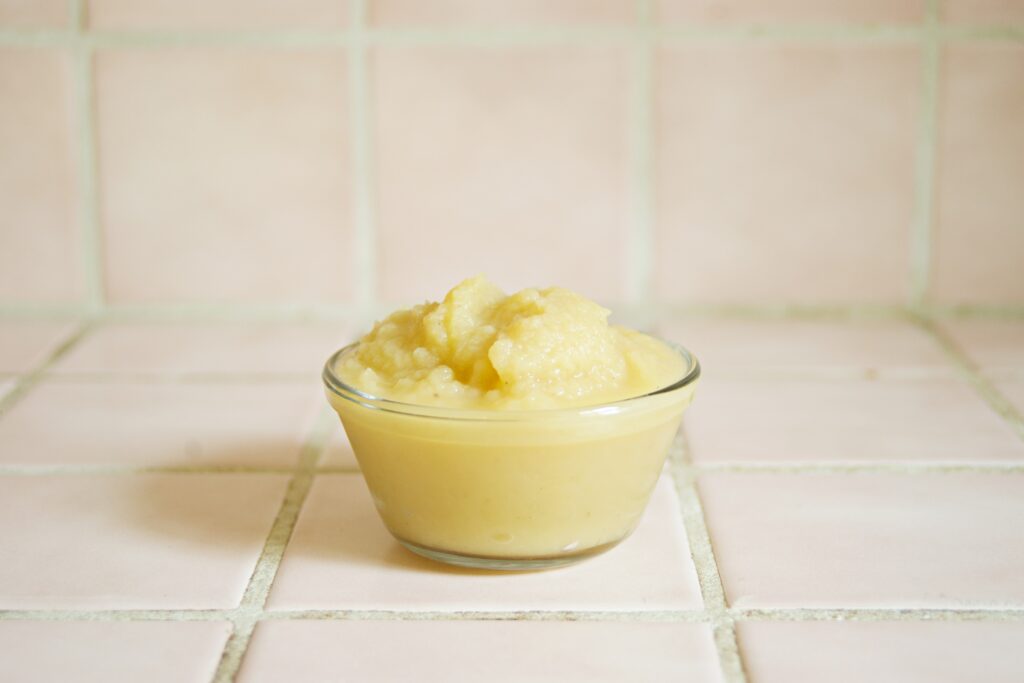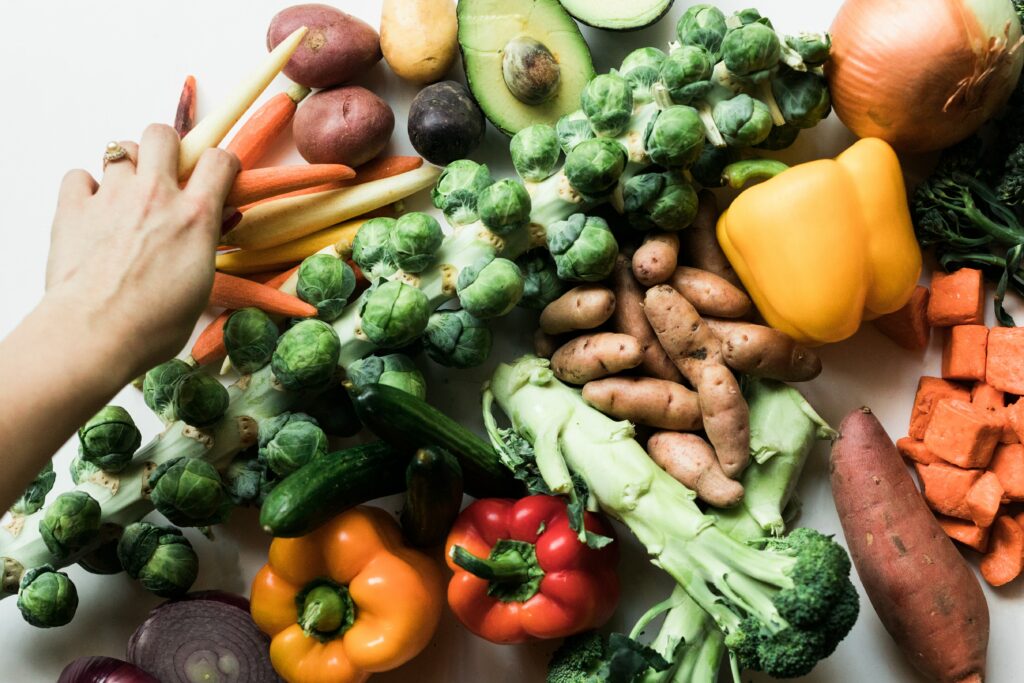In light of recent reports about heavy metals in baby food, you might be wondering which baby food products are safest for your little one. As a parent of an 11-month-old, I’m right there with you. The lack of testing and regulation by the U.S. Food and Drug Admin is extremely disappointing — especially in comparison to European standards. But as these reports become public knowledge, I am hopeful for industry-wide change. In the meantime, a handful of avant-garde American baby food brands are taking a stance. They believe to the importance of clean labels, sustainably-sourced ingredients, and the highest quality food for babies and toddlers.

What kinds of toxic heavy metals are in baby food?
Commercial baby foods — manufactured by brands like Gerber, Earth’s Best, Plum Organics, and Beech-Nut — are tainted with significant levels of toxic heavy metals. Think: arsenic, lead, cadmium, and mercury. Infant rice cereal, in particular, contains inorganic arsenic. This is a recognized carcinogen. Unfortunately, this isn’t new news. Concerns over heavy metals in baby foods have existed for a long time; thus, the current findings aren’t a surprise. At any rate, published reports reveal that these brands knowingly sell tainted baby food to unsuspecting parents, despite high levels of toxic heavy metals in internal test results.
A brief history of pesticides
It’s nearly impossible to avoid heavy metals in our food. After all, some of these metals occur naturally. It’s the pollutants, chemicals, and pesticides that permeate our earth that cause concern. And before you say, ‘But I buy organic!’ unfortunately, organic foods are not necessarily pesticide-free. For context, pesticides and fertilizers have been a part of our food system since the 1930s. An emergence on our farm land began after World War II. Since then, manufacturers have used them across industries. For example, we spray them on our lawns and they exist in our shampoos. That said, there are many ways you can limit these chemicals and toxins in your day-to-day life — especially in your home.
SOCIAL INEQUITIES IN OUR FOOD SYSTEM
Although the latest articles about heavy metals are very worrisome, they bring awareness to two things. First, there is a lot of room for improvement — by the FDA, American farming practices, marketing tactics, etc. In other words, it’s not just one part of the process that needs to adhere to safer, more transparent practices, it’s the entire ecosystem. Second, systemic health and social inequities disproportionately affect racial, ethnic, and poor minorities. Meaning, conventionally-grown ingredients are more likely to be consumed by these groups (due to factors like, price, accessibility, and knowledge). Ultimately, this means that babies of low-income households are amongst the highest of those consuming heavy metals.
While this is a topic for another blog post, systemic racism permeating America’s food system is deeply intertwined in the consumption of heavy metals. And while I still have a lot to learn, I do know that ending unsafe farming practices requires taking a stance, being an informed consumer, and supporting brands / communities advocating for change. May we learn and grow together — not just for our babies, but for their babies, our farmers’ babies, and future generations come.
Clean LaBel Project
Given the lack of rigorous American laws and regulations around testing for toxins, everything from packaged baby food to household cleaners and beauty products fly under the radar. These heavy metals, pesticide residues, and toxins are linked to chronic disease. Including infertility. But thanks to the Clean Label Project, brands are voluntarily embracing a public and environmental health call to action. The Clean Label Project is a non-profit. They evaluate and award brands that are thinking outside the box, in terms of food and consumer product safety and quality.
Specifically, they have really helpful information about baby product advocacy. Most notably, the Clean Label Project gives the ‘Purity Award’ to companies adhering to the strictest standards. This includes testing for heavy metals, BPA, pesticides, mycotoxins, glyphosate, and more. Six baby / toddler food companies that have received the Purity Award (for some, but not all of their products) are listed here.

Top 5 Organic baby food brands
Cerebelly: Developed by a practicing neurosurgeon, Cerebelly organic baby food includes nutrients that support early brain development and provide a nutritional punch. Wilson, our baby, loves these.
Serenity Kids: Another one of Wilson’s absolutely favorites — from free-range chicken to wild-caught salmon and organic bone broth, these pouches are loaded with essential nutrients and protein. Clicking the affiliate link will provide a 15% discount. Thank you for supporting Wellness with Edie.
White Leaf Provisions: This small, family-run business uses ingredients that are not only organic and GMO-free, but they are also regeneratively farmed and Biodynamic®. Wilson has been eating these pouches since he started solids.
Once Upon A Farm: Their organic, cold-pressed blends are filled with produce, herbs, and seeds like avocado, quinoa, and chia. To this day, Wilson gobbles these up.
Amara: Pressure protected, these pouches preserve essential nutrients in the ingredients. A wonderful, creamy texture, Wilson has enjoyed these from the early days of starting solids.
While this list specifically calls out baby food brands, I’ll write a new blog post about organic toddler food brands in the coming year!
Images courtesy of Rachel Loughman and Nathan Dumlao.



Leave a Reply